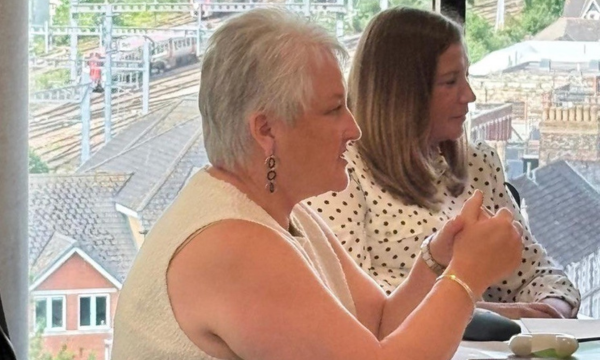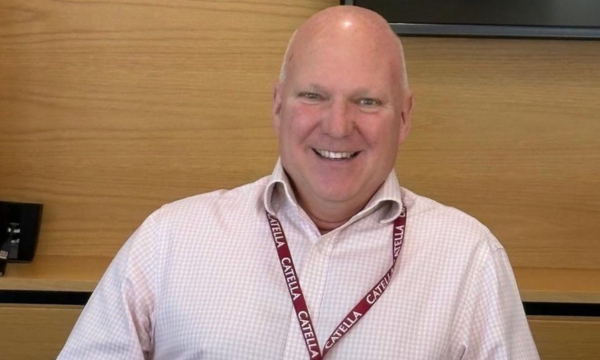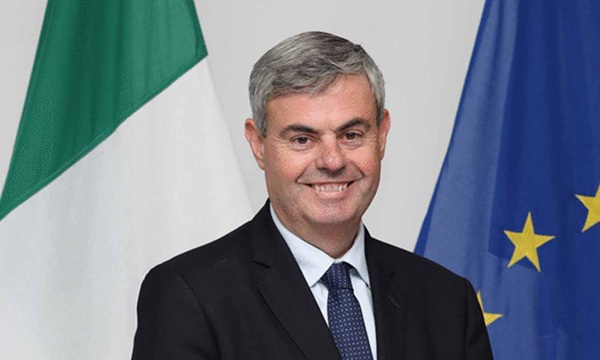
Ways to create and sustain thriving 21st century cities formed the focus of the third in a series of roundtables run by the Design Commission for Wales’ (DCFW) in partnership with Cardiff Business Club.
Continuing the design and placemaking themes of the first two events, which examined transport and the future of workplaces, the Commission brought together an expert panel and delegates.
Hosted by Cardiff Business Club chair, Philip Jardine, at Blake Morgan’s Cardiff Office and chaired by DCFW chief executive Carole-Anne Davies, the group drew four clear messages for city shapers in what makes good place design.
The panel comprised Simon Jones, chief executive of the Global Centre for Rail Excellence (GCRE) and Simon Power, planning director at Mott Macdonald – both also DCFW Commissioners – alongside cultural leader Emma Price of Studio Response.
Fourth panellist, Denz Ibrahim, Head of Futuring and Place at Legal & General, outlined L&G’s prioritisation of customer-centric placemaking, sharing examples from their work at New Acres in Wandsworth, and their approach in Cardiff. Emphasising the importance of rooting authenticity in localities, Denz drew on the experience of creating new living, leisure and business opportunities and what it takes to make places work.
“Our daily lives are multi-dimensional and L&G are creating places where people can live, shop, learn, access healthcare and run businesses all in one place, all in one day,” explained Carole-Anne Davies.
“Places that offer good neighbourhoods with diverse services and experiences make commercial sense and thrive. Entrepreneurial businesses that grow through the digital sphere still need customer-facing space and business support. L&G are bringing these factors together to create what Denz described as ‘horizontal and vertical’ value, providing well-designed environments as a backdrop for attractive amenities plus offering support to help businesses flourish.
“Denz also introduced the L&G concept of ‘community curators’, relationship managers who work with local people and businesses to continually maintain and evolve innovative services. These curators play a role in local leadership, identified by Simon Power as a key factor to cities’ resilience as as centres of culture, commerce and climate adaptation.
“Simon expanded on the importance of leadership at several levels beyond the political or civic, calling on everyone involved in design, planning and sustainability to consciously play an enabling role. Looking at the bare essentials of making sustainable cities happen – delivering the right density of homes to support good transport, and creating the right environment for footfall, safety and affordable homes – means committing to enabling good things to happen.
“Among the group there was clear consensus that we must all play our part, remain curious and creative and bring our design skills to placemaking that starts with people, to challenge traditional thinking and enable positive change. Good urbanism demands a defined, shared vision from the outset, shared by all stakeholders, protected by leadership and underpinned by commitment to deliver.
“Partnerships also featured heavily. Simon Jones highlighted the importance of the GCRE project to the south east and south west Wales city regions. Projected to contribute £300 million in Gross Value Added (GVA) and create 1,100 jobs in its first decade, the GCRE will be the leading location in Europe for rail testing and innovation, both for established global players and start-ups pioneering their products.
“This unique facility is already generating skilled employment opportunities and product development not only in the rail industries. Environmental, ecological, technical, industrial and engineering expertise are essential to the GCRE as they create the unique site to test, prototype and market new products and technology. University partnerships are therefore key with six universities from Wales and the Midlands bringing their expertise and creativity. GCRE is clearly so much more than a rail project, unique and globally significant in its capacity for wide-ranging innovation, all linked directly to Welsh cities and the wider cities regions.
“Cultural leader Emma M Price reminded us of the importance of people, their culture and their stories. Emma drove home the fundamental importance of culture and creativity as factors that enrich our daily lives. Art brings rhythm and drama to our streets, as well as a shared sense of identity, heritage and community understanding and artists are often best placed to reveal the stories of people and place. That authenticity and depth expressed through public art and culture bring individuality to our cities; without them, cities lack nuance, identity and interest.
“Rich insights from guests and thoughtful reflections from the panel identified four key elements that create the foundations for thriving cities. As they grow and change our cities need to be more than real estate – they need development and regeneration that starts with people and the needs, services and experiences they expect. They need to facilitate curiosity and embrace creativity through partnership, shared vision and trust. And they need the expertise and courage to create the conditions that accompany innovation – that means the all-important fourth pillar of leadership.”

“The Design Commission is renowned for bringing together outstanding expertise in design and placemaking and we’re fortunate to have such an organisation leading the way in Wales,” said Phil Jardine.
“It was another fascinating, passionate discussion and Cardiff Business Club is delighted to have played a part in bringing thought-leaders together in this really successful series of stimulating conversations.”












